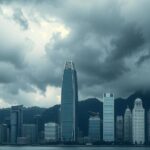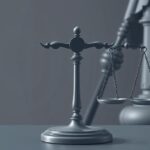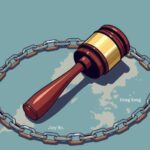Politics
ASIA, BEIJING, CHINA, COMMITTEE FOR SAFEGUARDING NATIONAL SECURITY, DICK WONG, DONG JINGWEI, HONG KONG, HUMAN RIGHTS, HUMAN_RIGHTS, LAW, LEGAL, MARGARET CHIU, MEXICO, MINISTRY, NATHAN LAW, NATIONAL SECURITY, NORTH AMERICA, RAYMOND SIU, STATE DEPARTMENT, TAIWAN, U. S, U. S. STATE DEPARTMENT, UNITED STATES, US, WASHINGTON
Dante Raeburn
U.S. Sanctions Hong Kong Officials Over Autonomy Erosion, China Responds
The U.S. has sanctioned six Chinese and Hong Kong officials for actions undermining Hong Kong’s autonomy, heightening tensions with China. The sanctions were linked to intimidation of pro-democracy activists post national security law enactment. China has threatened countermeasures, emphasizing its stance on national security. This reflects the ongoing friction over democratic freedoms in Hong Kong.
The United States has imposed sanctions on six Chinese and Hong Kong officials, citing their involvement in actions that undermine Hong Kong’s autonomy. This move is expected to exacerbate the existing tensions between the U.S. and China, already strained by issues such as trade tariffs and Taiwan. The officials targeted include Justice Secretary Paul Lam and security office director Dong Jingwei, among others.
According to the U.S. State Department, the sanctions were enacted due to these individuals’ links to actions that intimidate pro-democracy activists. Since the implementation of the national security law in 2020, authorities in Hong Kong have prosecuted numerous activists, leading to international condemnation. The law was ostensibly introduced to ensure stability in Hong Kong post the 2019 anti-government protests.
The Hong Kong authorities have taken severe steps against overseas activists, including issuing arrest warrants and revoking passports. The Chinese foreign ministry criticized the U.S. sanctions, calling them an attempt to undermine both Hong Kong’s prosperity and China’s development. It stated that China would respond with effective countermeasures.
Officials in Beijing and Hong Kong strongly condemned the sanctions, labeling them as acts of U.S. hegemony and suggesting that the targeted individuals were threats to national security. Justice Secretary Lam dismissed the sanctions, asserting they had no personal impact. Conversely, Frances Hui, a targeted activist, viewed the sanctions as a crucial step towards accountability for the ongoing repression in Hong Kong.
These sanctions are part of a broader pattern of U.S. actions against Hong Kong leaders, starting with measures during President Trump’s administration and continued under President Biden, aimed at addressing concerning developments in Hong Kong’s political landscape related to autonomy and human rights.
In conclusion, the recent U.S. sanctions against officials in Hong Kong highlight the ongoing conflict regarding human rights and governance in the region. The response from Beijing indicates a commitment to counter Western interventions while asserting the legitimacy of its national security measures. As the situation continues to evolve, both the local and international ramifications of these actions warrant close observation.
Original Source: abcnews.go.com








Post Comment